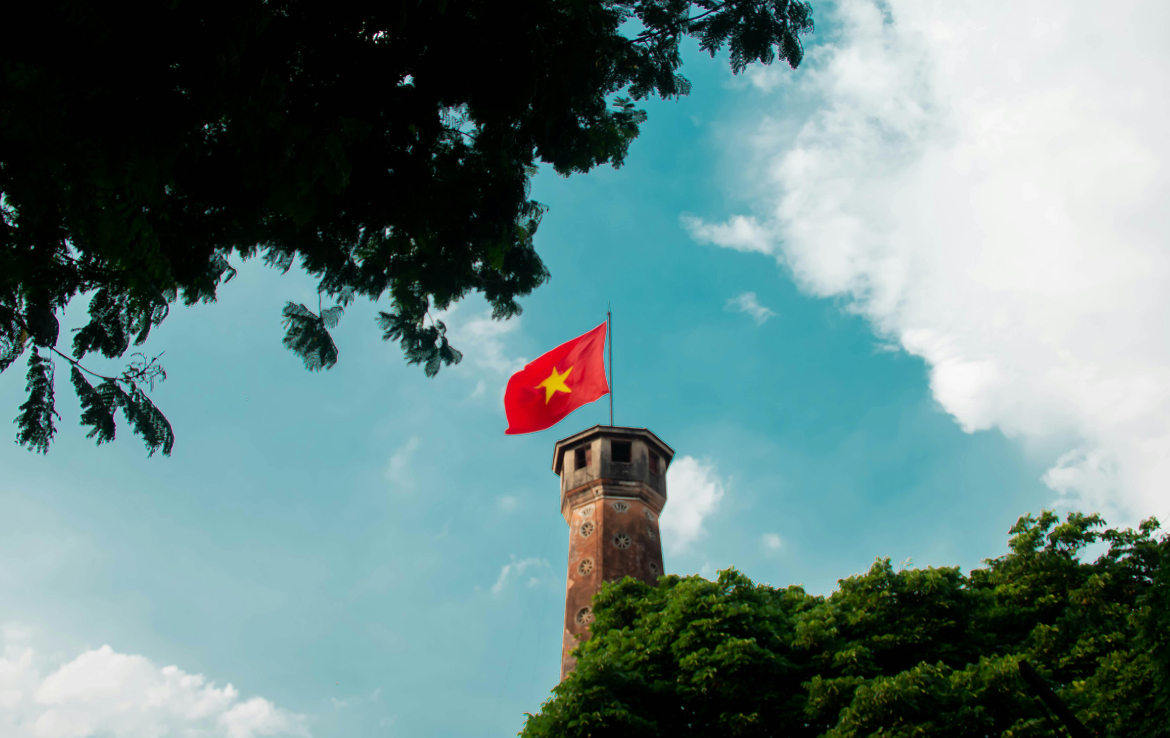Vietnam has become one of Asia’s most dynamic manufacturing destinations, drawing in investors across electronics, textiles, consumer goods, and automotive sectors. But with opportunity comes responsibility. Manufacturers today face increasing scrutiny over how they treat workers and how they impact the environment. Gone are the days when minimal compliance was enough.
From Free Trade Agreement (FTA) obligations to ESG expectations from global buyers, environmental and labor regulations in Vietnam are becoming more rigorous, and more consequential. This guide walks you through the legal frameworks, licensing requirements, and risks that every foreign manufacturer should understand when operating in Vietnam.
Licensing and Environmental Requirements for Factory Construction
Setting up a factory in Vietnam involves more than just securing land and building infrastructure. Manufacturers must navigate a series of regulatory approvals that align with Vietnam’s investment and environmental planning framework.
- Investment Registration Certificate (IRC) and Enterprise Registration Certificate (ERC) are foundational documents for all foreign-invested enterprises, establishing the legal presence and operational scope of the investor.
- Environmental requirements begin early. New factory projects must submit an Environmental Impact Assessment (EIA) or an Environmental Registration dossier depending on project size, location, and sector, with approvals required before site development can begin.
- Construction permits, fire prevention certificates, and land use rights approvals are mandatory before building begins. These often involve coordination across multiple ministries and provincial authorities.
Green building certifications like LEED, LOTUS, or EDGE are optional but increasingly valuable for companies supplying ESG-conscious buyers or working with global clients with sustainability requirements. Delays or errors in the licensing process can result in costly setbacks, rejections, or construction suspensions.
Vietnam’s Environmental Legal Framework for Manufacturers
The Law on Environmental Protection 2020 (effective since 2022) is Vietnam’s central legislation regulating environmental standards. It introduced significant reforms aimed at modernizing Vietnam’s environmental governance and aligning with international commitments.
Manufacturers must comply with:
- Environmental Licensing: Require either an Environmental License or complete an Environmental Registration before commencing operations. These approvals document emissions, treatment measures, and compliance commitments.
- Wastewater discharge permits: Mandatory for facilities discharging into water bodies. Permits are tied to discharge volume, pollutant type, and location.
- Solid waste management, air emission controls, and noise pollution standards: Factories must follow sector-specific technical regulations and ensure proper reporting and treatment systems are in place.
Authorities such as the Ministry of Natural Resources and Environment (MONRE) and provincial Departments (DONRE) oversee compliance. Violations can result in escalating penalties ranging from administrative fines to criminal prosecution, particularly for large-scale or repeated harm to public health or the environment.
Labor Laws All Manufacturers Must Comply With
Vietnam’s Labor Code 2019, in force since 2021, provides a comprehensive framework governing employment relationships. Manufacturers employing large workforces must ensure compliance across a wide range of obligations.
Key areas include:
- Employment Contracts: All workers must sign written contracts, with clear clauses on work scope, pay, location, and probation. Verbal agreements are rarely enforceable.
- Minimum Wages: Updated annually and set across four regional zones. Employers must track changes and adjust payroll systems accordingly.
- Working Hours & Overtime: Regular hours capped at 48/week. Overtime is limited by month and year and must be compensated at statutory premium rates.
- Social Insurance: Manufacturers must register with relevant agencies and contribute to social, health, and unemployment insurance on behalf of employees.
- Termination Rules: Dismissals require procedural steps, including written notice and documentation of lawful grounds.
Employers hiring foreign workers must comply with work permit issuance, job position justifications, and quota limits. Non-compliance can trigger fines, deportations, or permit suspension.
Labor Union Regulations and Worker Representation
Vietnamese law supports the formation of grassroots trade unions, typically affiliated with the Vietnam General Confederation of Labour (VGCL). Employers are required to:
- Facilitate union establishment and allow employees to participate freely.
- Support regular dialogues between workers and management.
- Deduct and remit employee union dues and contribute the employer’s statutory share of union funding.
As part of EVFTA and ILO commitments, Vietnam is under pressure to adopt freedom of association reforms. This could introduce independent worker organizations, especially in export-heavy industries. Manufacturers should proactively align with labor relations best practices to avoid disruptions.
Mandatory ESG and FTA-Linked Compliance for Export-Oriented Manufacturers
Vietnam’s participation in agreements like the EVFTA, CPTPP, and RCEP includes enforceable provisions on labor rights and environmental protection. These obligations are no longer theoretical—they are now tied to access to markets and preferential tariffs.
- Labor Compliance: Commitments include eliminating forced and child labor, ensuring safe working conditions
- Environmental Commitments: Require pollution control, sustainable resource use, and reporting obligations.
- Buyer Expectations: Many international brands require ESG audits and codes of conduct as a condition of business.
Non-compliance carries serious risks, including loss of tariff benefits, export restrictions, contract termination, and reputational damage in key markets such as the EU, Japan, and North America.
Factory Audits, Inspections, and Government Monitoring
Vietnamese authorities conduct both scheduled and unannounced inspections of manufacturing facilities. These may target labor practices, environmental compliance, or both.
Triggers include:
- Anonymous worker complaints
- Media coverage or NGO reports
- Routine audits by MONRE, DONRE, or labor inspectors
During inspections, officials will review documents, interview staff, and assess on-site conditions. Manufacturers should maintain updated records (permits, contracts, payroll logs) and train compliance officers to handle inspection procedures. Poor audit results may lead to penalties or mandatory remediation.
Sustainability Certifications and Supply Chain Transparency
More global buyers are demanding verified ESG performance from Vietnamese manufacturers. Key certifications include:
- ISO 14001 (Environmental Management)
- ISO 45001 (Occupational Health & Safety)
- SA8000, WRAP, and BSCI (Social Responsibility)
To meet these standards, factories must invest in documentation, audit preparation, and digital traceability systems. Including ESG clauses in supplier and employment contracts can help legally reinforce sustainability expectations and ensure alignment throughout the supply chain.
Conclusion
Vietnam offers a fertile ground for manufacturing investment, but success increasingly depends on your ability to operate responsibly. Environmental and labor compliance is no longer just a legal issue—it’s a strategic imperative for market access, supply chain integration, and investor confidence.
At Corporate Counsels, we advise manufacturers on navigating Vietnam’s environmental and labor laws with precision and foresight. From regulatory audits to contract structuring, our Corporate Lawyers specializing in manufacturing are able to help you stay compliant, credible, and competitive. Contact us at letran@corporatecounsels.vn for strategic legal support tailored to your operations.








